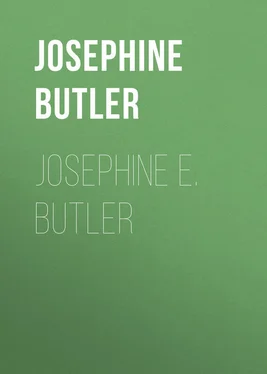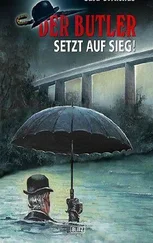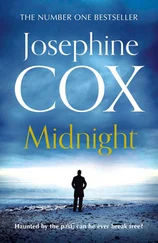Josephine Butler - Josephine E. Butler
Здесь есть возможность читать онлайн «Josephine Butler - Josephine E. Butler» — ознакомительный отрывок электронной книги совершенно бесплатно, а после прочтения отрывка купить полную версию. В некоторых случаях можно слушать аудио, скачать через торрент в формате fb2 и присутствует краткое содержание. Жанр: foreign_antique, foreign_prose, на английском языке. Описание произведения, (предисловие) а так же отзывы посетителей доступны на портале библиотеки ЛибКат.
- Название:Josephine E. Butler
- Автор:
- Жанр:
- Год:неизвестен
- ISBN:нет данных
- Рейтинг книги:5 / 5. Голосов: 1
-
Избранное:Добавить в избранное
- Отзывы:
-
Ваша оценка:
- 100
- 1
- 2
- 3
- 4
- 5
Josephine E. Butler: краткое содержание, описание и аннотация
Предлагаем к чтению аннотацию, описание, краткое содержание или предисловие (зависит от того, что написал сам автор книги «Josephine E. Butler»). Если вы не нашли необходимую информацию о книге — напишите в комментариях, мы постараемся отыскать её.
Josephine E. Butler — читать онлайн ознакомительный отрывок
Ниже представлен текст книги, разбитый по страницам. Система сохранения места последней прочитанной страницы, позволяет с удобством читать онлайн бесплатно книгу «Josephine E. Butler», без необходимости каждый раз заново искать на чём Вы остановились. Поставьте закладку, и сможете в любой момент перейти на страницу, на которой закончили чтение.
Интервал:
Закладка:
This was no light trial. Our pleasant home must be broken up; all the hopes and plans my husband had cherished abandoned; the house he had taken and furnished at some expense as a Hall for unattached students thrown on his hands. To carry it on alone, to be separated for an indefinite time from each other, was scarcely possible. There seemed for the present no alternative. He accepted calmly, though not without keen regret, what was clearly inevitable. The difficulties of our position were for a time increased by a serious reverse of fortune experienced by my father, who had always been ready to aid on occasion the different members of the family. There had occurred a complete collapse of a bank in which he was a large shareholder. The loss he sustained was great. The spirit in which he bore the trial raised him still higher in the estimation of those who already so highly valued and admired him. Trouble followed upon trouble for a time, and my husband suffered all the more because of some inward self-reproach for having failed to exercise sufficient providence and foresight in the past. His greatest anxiety was for me; but that happily was gradually lightened as time went on.
Through the kindness of his friend, Mr. Powles, my husband was called to take temporarily the charge of a chapel at Blackheath, in the summer of 1857, which gave him useful and congenial ministerial work while continuing his literary pursuits. He had gone on in advance to arrange for our removal to Blackheath.
To her husband. St. Barnabas Day, June 11th, 1857.God bless you to-day and always, and make you a “Son of Consolation” to many in the time to come, as you have been to me. Earthly success is no longer our aim. What I desire above all for you is the fulfilment of the promise: “They that are wise shall shine as the light, and they that turn many to righteousness, as the stars for ever and ever.” I had an encouraging conversation yesterday with – , which fell in with the train of my thoughts regarding you and myself. She said she had seen many cases in which individual chastening had preceded a life of great usefulness, though the subject of the chastening had thought at the time that his life was passing away, wasted or only spent in learning the lesson of submission. She thought that those to whom the discipline of life comes early rather than late ought to thank God; for it makes them better able to minister to others, and to walk humbly with their God. May that be the case with us. The little boys remembered your birthday before they were out of bed this morning, and have made an excursion to Nightingale Valley in honour of it.
CHAPTER III.
CHELTENHAM
In the autumn of 1857 my husband was invited to fill the post of Vice-Principal of the Cheltenham College. He accepted the invitation, and we went to Cheltenham the same year. He here entered upon his long course of assiduous and untiring work as a schoolmaster – a work which covered a quarter of a century, beginning at Cheltenham in 1857, and continued at Liverpool from the winter of 1865-66 until 1882. We gained much at Cheltenham in an improved climate, and in the cessation of material difficulties and anxieties. We lived in a large house, in which, for some years, we received a number of pupils. It was characteristic that it should have supplied some of the best athletes of the College, and many successful competitors in the school games, in feats of strength, activity and skill. My husband considered physical training to be an essential part of the education of youth.
Our summer vacations continued to be spent largely at Dilston; we went however one year to Switzerland with our eldest son. We visited Lucerne and its neighbourhood, and afterwards the Rhone Valley, Chamounix, and the great St. Bernard, passing a night at the hospice, where we profited much by our intercourse with the beautiful dogs, one of whom, a veteran called Bruno, the forefather of many a noble hound, attached himself to us, and made himself our cicerone among the rocks in the desolate surroundings of the monastery. Another summer excursion was, with two of our children, to the Lakes of Killarney, including a visit to my brother, Charles Grey, who lived then in a house of Lord Derby, at Ballykisteen, in the “golden vale” of Tipperary. In both these years my husband brought home many sketches. The grey rocks skirting the borders of Killarney lakes, with their richly-coloured covering of arbutus and other flowering trees and evergreens, were tempting subjects for water-colours.
My father had been a friend of Clarkson, and a practical worker in the movement for the abolition of the slave trade. When the War of Secession in America broke out, my husband’s sympathies were warmly enlisted on behalf of those who desired the emancipation of the slaves, and he perceived that that was indeed the question, the vital question of justice, which lay at the root of all that terrible struggle. This was one of several occasions in our united life in which we found ourselves in a minority; members of a group at first so insignificant that it scarcely found a voice or a hearing anywhere, but whose position was afterwards fully justified by events. It was a good training in swimming against the tide, or at least in standing firm and letting the tide go by, and in maintaining, while doing so, a charitable attitude towards those who conscientiously differed, and towards the thousands who float contentedly down the stream of the fashionable opinion of the day. In this case the feeling of isolation on a subject of such tragic interest was often painful; but the discipline was useful, for it was our lot again more emphatically in the future to have to accept and endure this position for conscience’ sake.
I recollect the sudden revulsion of feeling when the news was telegraphed of the assassination of President Lincoln; the extraordinary rapidity of the change of front of the “leading journal;” and the self-questionings among many whose intelligence and goodness had certainly given them the right to think for themselves, but who had not availed themselves of that right. I remember the penitence of Punch , who had been among the scoffers against the abolitionists of slavery, and who now put himself into deep mourning, and gave to the public an affecting cartoon of the British Lion bowed and weeping before the bier of Lincoln. A favourite scripture motto of my husband’s was, “ Why do ye not of yourselves judge that which is right ?” But he was not argumentative. He loved peace, and avoided every heated discussion. His silence was, perhaps, sometimes not less effectual by way of rebuke or correction of shallow judgments than speech would have been. Goldwin Smith, one of the few at Oxford who saw at that time the inner meanings of the American struggle, paid us a visit. It occurred to us, while listening to some pointed remarks he was making on the prevalent opinion of the day, to ask him to write and publish something in reply to the often-repeated assertion that the Bible itself favours slavery. “The Bible,” he replied, “has been quoted in favour of every abomination that ever cursed the earth.” He did not say he would write; but the idea sank into his mind, and not long after he sent us his able and exquisite little book, entitled Does the Bible sanction Slavery? – a masterly and beautiful exposition of the true spirit of the Mosaic law, and of the Theocratic government and training of the ancient Hebrew people in relation to this and other questions. This book was naturally not popular at the time, and I fear it has long been out of print. (It was published in 1863.)
In this connection it is interesting to record, that two other notable books owed their inspiration in a large measure to Josephine Butler. The Patience of Hope , by Dora Greenwell, published in 1859, was dedicated to J. E. B., with the inscription — A te principium, tibi desinet (from thee begun with thee my work shall close). Te sine nil altum mens inchoat (without thee nothing high my mind essays). Frederic Myers, who had been at school at Cheltenham College, in his Fragments of Inner Life , 1 1 Fragments of Prose and Poetry , by Frederic W. H. Myers, 1904 (Longmans, Green & Co.), p. 22.
tells how“Christian conversion came to me in a potent form – through the agency of Josephine Butler, née Grey, whose name will not be forgotten in the annals of English philanthropy. She introduced me to Christianity, so to say, by an inner door; not to its encumbering forms and dogmas, but to its heart of fire. My poems of St. Paul and St. John the Baptist , intensely personal in their emotion, may serve as sufficient record of those years of eager faith.” St. Paul , published in 1867, was dedicated to J. E. B., with the inscription – ᾗ καὶ τὴν ἐμὴν ψυχην ὀφείλω (to whom I owe my very soul). In 1869 Myers gave up a Lectureship at Trinity in order to devote himself to the promotion of the higher education of women, and he was one of the small band of university men, who worked hard with Josephine Butler and her colleagues on the North of England Council, to which we shall refer later on.
Интервал:
Закладка:
Похожие книги на «Josephine E. Butler»
Представляем Вашему вниманию похожие книги на «Josephine E. Butler» списком для выбора. Мы отобрали схожую по названию и смыслу литературу в надежде предоставить читателям больше вариантов отыскать новые, интересные, ещё непрочитанные произведения.
Обсуждение, отзывы о книге «Josephine E. Butler» и просто собственные мнения читателей. Оставьте ваши комментарии, напишите, что Вы думаете о произведении, его смысле или главных героях. Укажите что конкретно понравилось, а что нет, и почему Вы так считаете.












